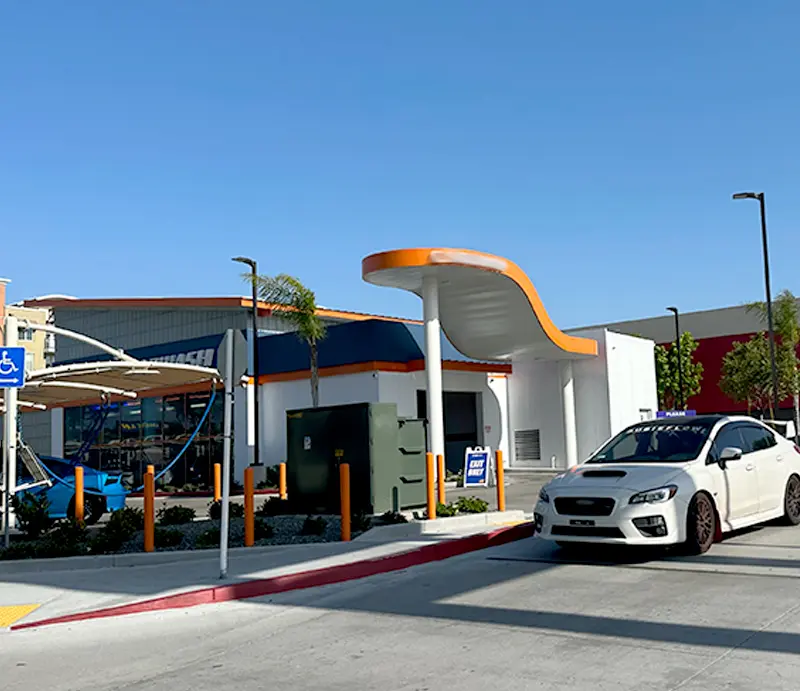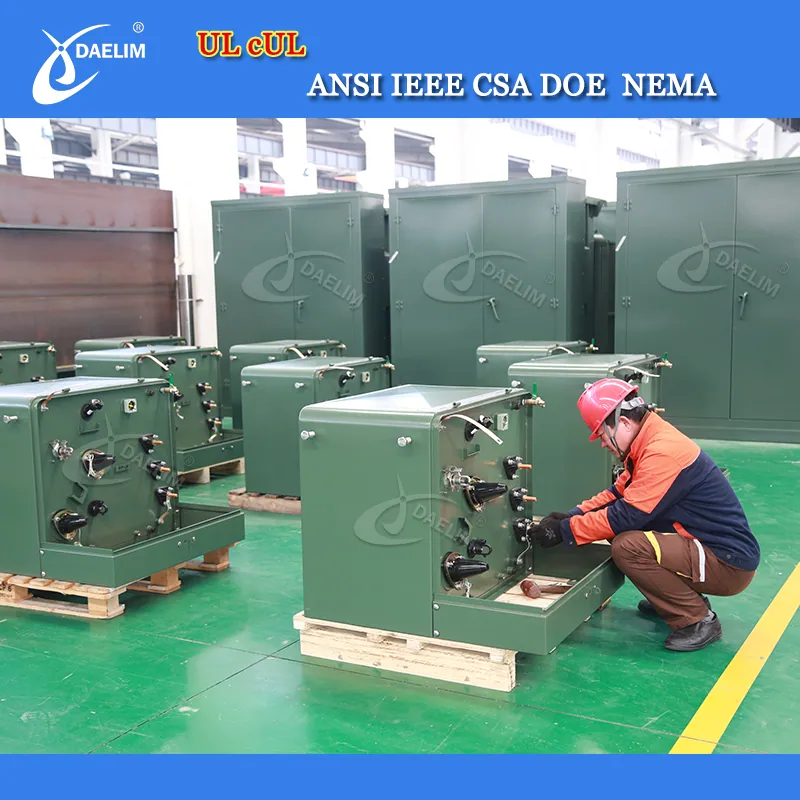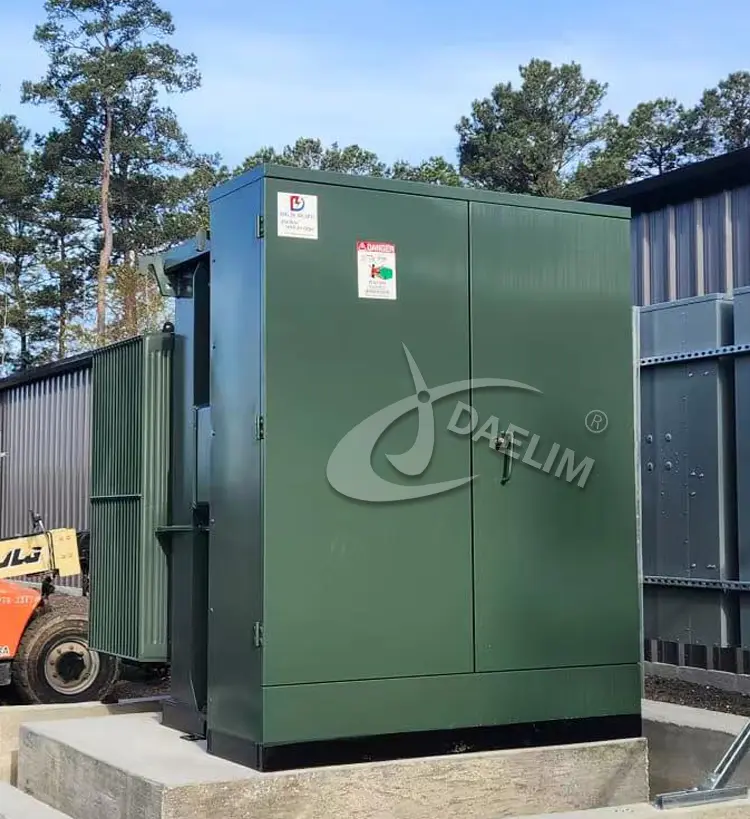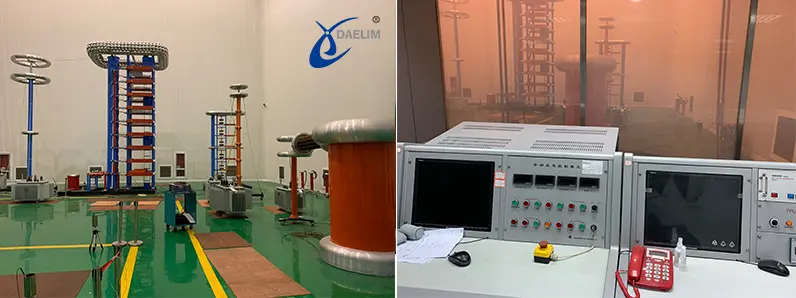Guide to EV(electric vehicle) Charging Station Transformers

With the global shift towards clean energy and the burgeoning popularity of electric vehicles (EVs), the demand for efficient and reliable charging infrastructure is skyrocketing. As regions like California and the European Union set ambitious goals to phase out gasoline-powered cars by 2035, the role of transformers in facilitating rapid, safe, and efficient charging becomes paramount.
As vital components supplying power to charging stations, transformers play a crucial role in facilitating the swift, efficient, and safe replenishment of electric vehicles. Today's article primarily discusses the types of transformers utilized in charging stations, their design features, how to choose a transformer supplier, and other pertinent issues.
Contact Daelim TransformerElectric vehicles (EVs) utilize four charging levels, namely Level 1, Level 2, Level 3, and Level 4. Level 1 and Level 2 charging are primarily designed for home use and charge at relatively slow rates of 2-10 miles per hour. These levels typically operate on single-phase power and require the use of corresponding single-phase transformers. In contrast, Level 3 and Level 4 chargers (also known as fast chargers) offer faster charging speeds of 50-200 miles per hour. They are typically deployed in public places such as highways and large parking lots, using a three-phase voltage configuration that necessitates a three-phase transformer.
 In the Americas, Level 1 and Level 2 charging of electric vehicles typically relies on single-phase pole-mounted transformers or single-phase pad-mounted transformers. These transformers generally have a capacity of no more than 100 kVA and are suitable for powering a single low-power charging station at a residential property. On the other hand, large charging stations that cater to Level 3 and Level 4 charging requirements use three-phase substation power transformers or pad-mounted transformers. These transformers range in capacity from 500 to 5000 kVA and can power multiple fast chargers with power exceeding 240 kW.
In the Americas, Level 1 and Level 2 charging of electric vehicles typically relies on single-phase pole-mounted transformers or single-phase pad-mounted transformers. These transformers generally have a capacity of no more than 100 kVA and are suitable for powering a single low-power charging station at a residential property. On the other hand, large charging stations that cater to Level 3 and Level 4 charging requirements use three-phase substation power transformers or pad-mounted transformers. These transformers range in capacity from 500 to 5000 kVA and can power multiple fast chargers with power exceeding 240 kW.
In Europe, electric vehicle charging infrastructure Ecodesign transformers, which are known for their high-efficiency values. These transformers are characterized by capacities not exceeding 5000 kVA and operating voltage levels below 35 kV. By utilizing these advanced transformers, European electric vehicle charging networks can optimize energy use and minimize environmental impact.
Understanding the Charging Landscape

Electric vehicle charging typically encompasses four levels, each with varying speeds and power requirements. Levels 1 and 2, geared towards home charging, utilize single-phase power and corresponding transformers. In contrast, levels 3 and 4, known as fast chargers, demand three-phase transformers for rapid charging in public locations.
Given the electric vehicle charger's function as a non-linear load within the power grid, charging an electric vehicle may induce significant load fluctuations, signal distortion, harmonic issues, thermal effects, and electromagnetic interference, potentially compromising the stability of the power grid system. Consequently, clear technical requirements exist for the design technology of transformers used in car charging stations, irrespective of the region.
Transformer Design Features
 To address the unique challenges posed by EV charging, transformers must exhibit specific design features:
To address the unique challenges posed by EV charging, transformers must exhibit specific design features:
High Harmonic Resistance
As electric vehicles (EVs) become increasingly prevalent, the demand for efficient charging infrastructure rises. However, EV chargers introduce non-linear loads to the power grid, leading to harmonic distortions and electromagnetic interference. To counteract these effects and maintain grid stability, transformers with high harmonic resistance are essential. K-factor transformers are specifically designed to withstand harmonic currents and prevent adverse effects on both the transformer itself and the surrounding electrical infrastructure. For systems with low to moderate electric vehicle charging loads, K4-K8 factor transformers are suitable, while high-power fast charging stations benefit from K9 and above-rated transformers. These transformers employ advanced winding designs and insulation materials to mitigate harmonics, ensuring optimal performance and reliability.
Electrostatic Shielding
Electric vehicle charging processes can generate electrostatic discharges, which, if transmitted into the power grid, may cause interference and pollution. Electrostatic shielding addresses this issue by providing a protective barrier around the transformer windings, preventing the propagation of electrostatic fields. By containing these discharges within the transformer, shielding minimizes the risk of grid contamination and ensures the integrity of power supply. Advanced materials such as conductive coatings and insulated barriers are employed to enhance the effectiveness of electrostatic shielding, thereby safeguarding the stability and reliability of the electrical system.
 Low Temperature Rise
Low Temperature Rise
Transformers are subject to temperature fluctuations during operation, with excessive heat leading to reduced efficiency and potential damage. In regions with high ambient temperatures or heavy electrical loads, transformers are particularly susceptible to elevated operating temperatures. To mitigate this risk, transformers designed with low temperature rise specifications are preferred. These transformers incorporate advanced cooling systems, optimized winding configurations, and high-quality insulation materials to minimize heat generation and maintain operating temperatures within acceptable limits. By ensuring efficient heat dissipation and thermal management, low temperature rise transformers enhance reliability and longevity, even in challenging environmental conditions. Some North American electric vehicle charging station projects undertaken by Daelim Transformer use a temperature rise of 55°.
Fuse Protection
Overload conditions pose a significant risk to transformer operation, potentially leading to overheating, insulation degradation, and equipment failure. To mitigate this risk, transformers are equipped with integrated fuse protection systems. These systems monitor current levels and respond to abnormal conditions by tripping the fuse, thereby isolating the transformer from the electrical circuit and preventing damage. Advanced fuse protection mechanisms, including electronic sensors and intelligent control algorithms, enhance the responsiveness and reliability of the system. By safeguarding against overload events, fuse protection systems ensure the safety and integrity of the charging infrastructure, minimizing downtime and maintenance costs.
Guide to Pad Mounted Transformer Fuse
Security Measures
Given the critical role transformers play in electric vehicle charging infrastructure, ensuring their security is paramount. Transformers should be installed in secure locations inaccessible to the public, or unauthorized access. Alternatively, transformers can be designed with tamper-proof enclosures featuring robust construction and integrated locking mechanisms. Additionally, advanced security features such as surveillance cameras and remote monitoring systems can further enhance the protection of transformers and the surrounding infrastructure. By safeguarding against external threats, these security measures ensure the reliability and integrity of the charging infrastructure, facilitating uninterrupted operation and peace of mind for stakeholders.
By incorporating these advanced design features into transformer specifications, electric vehicle charging stations can effectively address the challenges posed by non-linear loads, environmental factors, and security risks, ensuring reliable and efficient operation within the power grid.
The Impact of Impedance on Transformer Design
How to choose the Right Supplier?
Choosing the right supplier for electric vehicle (EV) charging station transformers is crucial for ensuring the efficiency, reliability, and safety of your infrastructure. Here are several key factors to consider:
Experience and Expertise
Seek suppliers with a proven track record of supplying transformers specifically designed for EV charging stations. Look for companies that have demonstrated expertise in this niche sector, including knowledge of industry standards, regulations, and emerging technologies.
Consider suppliers with extensive experience in transformer design, manufacturing, installation, and maintenance. A supplier with a deep understanding of the unique requirements and challenges of EV charging infrastructure can provide valuable insights and solutions tailored to your project needs.
Technical Competence
Assess the supplier's technical capabilities in transformer engineering and design. Look for evidence of innovation and technological advancement in their products, such as advanced cooling systems, high-efficiency materials, and integrated smart features.
Evaluate the supplier's ability to customize transformers to meet your specific project requirements, including voltage ratings, power capacity, footprint, and environmental considerations. A supplier that can offer bespoke solutions tailored to your needs can enhance the performance and longevity of your EV charging infrastructure.
Compliance and Certification
Verify that the supplier's transformers comply with relevant international standards and certifications, such as IEEE, ANSI, UL, CSA, CE, and ISO. Ensure that their products meet all regulatory requirements and safety standards applicable to EV charging infrastructure.
Look for suppliers who actively participate in industry associations and organizations focused on electric mobility and renewable energy. Membership in such groups demonstrates a commitment to quality, sustainability, and continuous improvement in transformer technology.
Quality Assurance and Testing

Prioritize suppliers with robust quality assurance processes and stringent testing protocols. Ensure that their transformers undergo comprehensive testing for performance, reliability, efficiency, and safety before being deployed in the field.
Request information on the supplier's testing facilities, equipment, and procedures to verify the integrity and reliability of their products. Look for evidence of continuous improvement and investment in quality management systems.
How to test a power transformer?
Production Capacity and Lead Times
Evaluate the supplier's production capacity and flexibility to meet your project timelines and scalability requirements. Consider factors such as manufacturing facilities, production processes, inventory management, and supply chain resilience.
Discuss lead times, production schedules, and delivery logistics with the supplier to ensure timely availability of transformers for your EV charging station deployment. Transparency and open communication are essential for aligning expectations and minimizing project delays.
Customer Support and Service
Choose a supplier that provides excellent customer support and service throughout the project lifecycle. Look for companies with dedicated sales, technical support, and after-sales service teams who can assist you with product selection, installation, commissioning, and ongoing maintenance.
Evaluate the supplier's responsiveness, accessibility, and willingness to address your concerns or inquiries promptly. A reliable support network can help you troubleshoot issues, optimize performance, and maximize the return on investment in your EV charging infrastructure.
By considering these factors and conducting thorough due diligence, you can select a trusted supplier for electric vehicle charging station transformers who can meet your project requirements and contribute to the success of your electrification initiatives.
Why Daelim Transformer?
Daelim Transformer stands out as a leading provider of transformer solutions for electric vehicle charging stations, offering a multitude of compelling reasons for consideration.
Extensive Experience
With a rich history of successful transformer projects spanning North America, South America, Australia, and Europe, Daelim Transformer brings a wealth of experience to the table. The company has supported hundreds of projects annually, demonstrating its proficiency and expertise in the field. From small-scale residential installations to large-scale public infrastructure, Daelim Transformer has a proven track record of delivering high-quality solutions tailored to diverse requirements.
Comprehensive Standards Compliance
Daelim Transformer adheres to a wide range of international standards, including IEEE, ANSI, NEMA, DOE, CSA, IEC, EN, AS, and more. This commitment to standards compliance ensures that all products meet rigorous quality and safety requirements, guaranteeing reliable and dependable performance in diverse operating environments.
Customized Design Capabilities
One of Daelim Transformer's key strengths lies in its ability to provide customized transformer designs tailored to the specific needs of electric vehicle charging stations. The company's highly skilled design and production teams work closely with clients to understand their unique requirements and develop bespoke solutions that optimize performance, efficiency, and reliability.
Stringent Quality Assurance
Daelim Transformer places a strong emphasis on quality assurance, with each transformer undergoing rigorous factory testing before shipment. This meticulous testing process ensures that every product meets the highest standards of quality, safety, and reliability, providing customers with peace of mind and confidence in their investment.
International Certifications
Daelim Transformer holds various international certifications, including UL, cUL, CSA, CE, CESI, FM, and more. These certifications serve as a testament to the company's commitment to excellence and further validate the quality and reliability of its products.
Efficient Production Processes
Leveraging highly automated production equipment and streamlined manufacturing processes, Daelim Transformer ensures efficient and timely delivery of products without compromising on quality. The company's efficient production capabilities enable it to meet the growing demand for transformers in the electric vehicle charging industry, providing customers with prompt and reliable service.
Strong Customer Support
Daelim Transformer is dedicated to providing exceptional customer support throughout the entire project lifecycle. From initial consultation and design to installation, commissioning, and ongoing maintenance, the company's team of experienced professionals is committed to delivering superior service and support to ensure customer satisfaction.
Overall, Daelim Transformer's combination of extensive experience, comprehensive standards compliance, customized design capabilities, stringent quality assurance, international certifications, efficient production processes, and strong customer support make it a preferred choice for electric vehicle charging stations worldwide.
If your EV charging station requires transformers, or you need a transformer partner, Contact Daelim Transfomer today.

